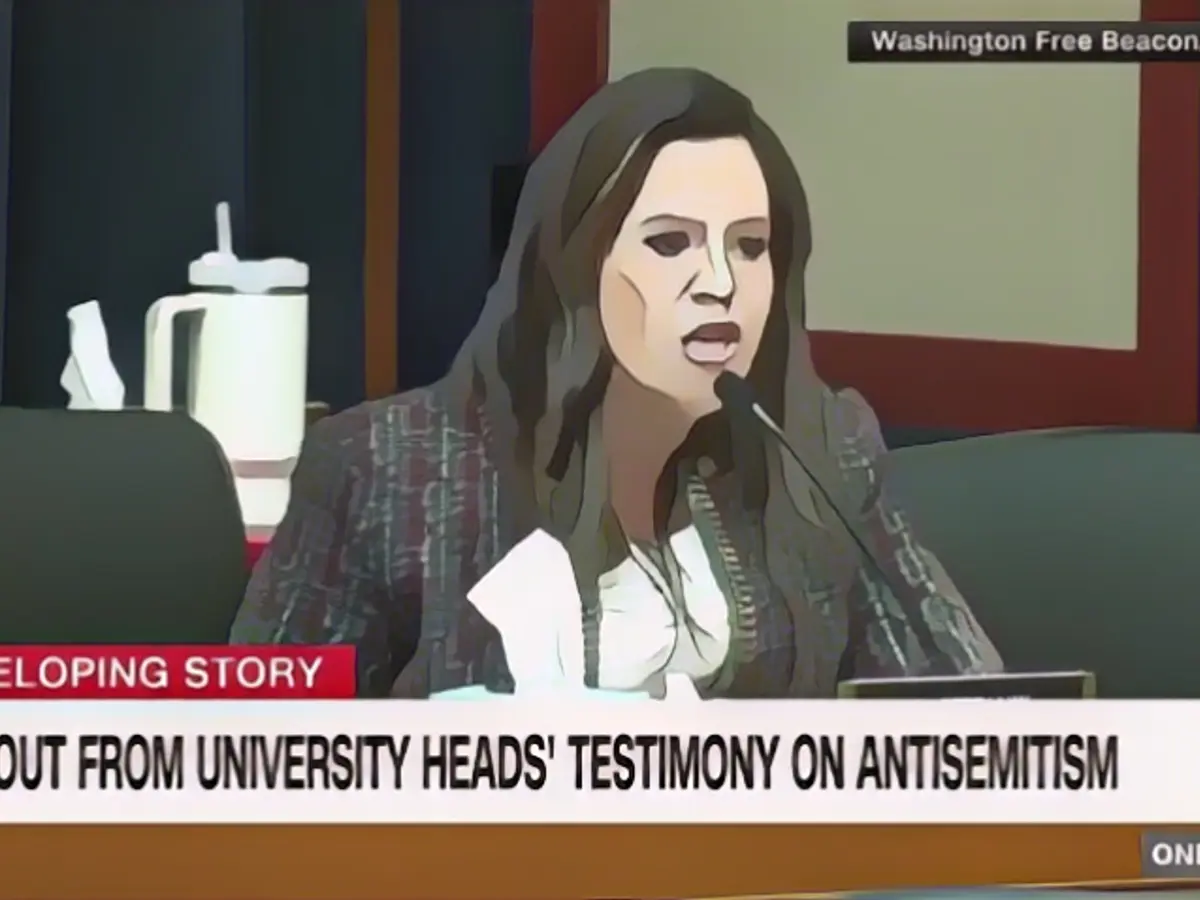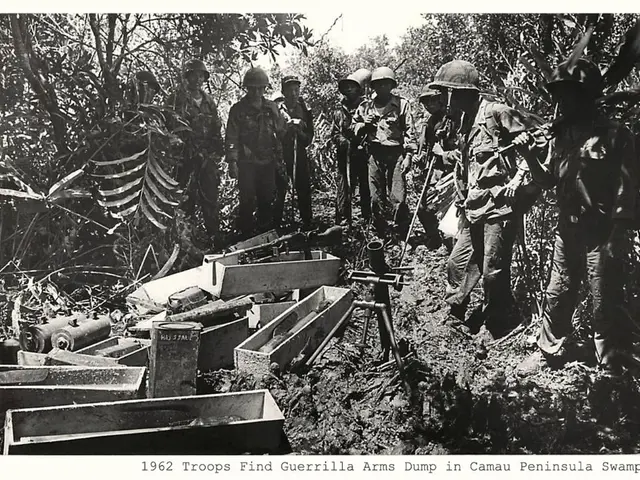In a world where one-sided talking points, social media, secret recordings of professors and students, elected officials demanding yes/no answers, and even politicians calling for simple answers plague the discourse, distrust and division flourish, making difficult conversations in the classroom challenging. And, unfortunately, the classroom is a familiar setting for such challenges.
This isn't a new issue, as evidenced by events during the Gaza conflict. Recently, the Education and Workforce Committee of the House of Representatives demanded that the presidents of Harvard, MIT, and Penn address the issue of antisemitism on campus. The Republicans on the committee, led by Elise Stefanik (R-NY), insisted on a straightforward response, demanding that the presidents condemn the general call for genocide against Jews, which is generally protected under free speech. However, the presidents offered nuanced and qualifying answers, despite making it clear that certain boundaries should not be crossed.
As a result, the hearings sparked a public outcry, and my main concern is that it will become even more difficult to use education as a means of addressing this moment in history.
Stefanik was careful and asked if the demand for a genocide against Jews in general was a form of harassment and a violation of campus policies. Columnist Kevin Drum pointed out that this was a deliberate move to put the presidents in a difficult position, as hate speech that does not target a specific individual is generally protected. While I agree that no one should call for genocide, I think the issue goes deeper.
My university president should make it clear that such calls are unacceptable, even if asked about "politics." However, while the Congressional hearing may have been good politics, it does not reflect the situation I am experiencing in my classroom – the place that matters most to me.
According to my syllabus, I planned to teach the history of the Vikings to the class on October 9th. I teach a first-year seminar on the origins of historical narratives, reading everything from deep scholarship to the silliest of novels, with a focus on medieval Europe.
After the October 7th terror attacks, I knew that my students had something to say. So, I held off on the Vikings and instead sat down with the class and told them that, as a historian, I hoped the classroom would be a good place to discuss the events in Israel, Gaza, and their communities. I admitted my own ignorance and encouraged them to ask questions, especially about history.
I said that I would also acknowledge my own ignorance, as I am not an expert on the 20th or 21st centuries, let alone modern events. They already know that I am Jewish, and while I have never hidden my political views (which is tricky when you write a political column and must keep your politics out of the classroom), in the classroom, we strive to build a community where we can discuss tough topics and often have differing opinions while still remaining a community.
This was a day filled with harsh words and confusing rhetoric, as the history—the entire history, but particularly this history—is complex, not supporting simple ideological positions.
A few weeks later, we discussed the history of the Crusades. We started with a massacre in 1099, when European armies breached the walls of Jerusalem and massacred those who had sought shelter in the Muslim holy site. We ended at a nuanced place, reading sources and scholarship that revealed conflicts and outcomes of coexistence. We discussed how people make choices and understand the world, as well as the political implications.
Just before Thanksgiving, we discussed the long and terrible history of Blood Libel or the Conspiracy Theory (completely false), that Jews ritually kidnapped and murdered Christian children. Its origins date back to the 12th century, but it persisted into the Middle Ages and beyond. In recent times, as author Talia Lavin has documented for The New Republic, it has manifested in the right-wing conspiracy theory QAnon, which claims that there is a secret cabal of elites (primarily focused on Jews) engaged in the extraction of adrenochrome (a chemical used in anti-adrenochrome) from the blood of tortured children to achieve immortality.
The latest iteration of this old and vile myth raises political questions and highlights the persistence and spread of antisemitic myths over the centuries. We discussed why it is so difficult to eradicate such beliefs and how easy it is for people to fall into or spread antisemitism without meaning to.
This history puts pressure on those who criticize Israel to be more active in not participating in or being swayed by modern antisemitism. In many ways, this was the most difficult of the three lectures for me. I made it clear to the students that I respected their right to take any position on the conflict, but that they should also know how to argue for their position. Encourage them to listen to the story, which is the important part of the conversation.
These are the kinds of conversations that can take place on a college campus. These are certainly experiences that I had as a student, and that I have worked to foster in my classes for the past 30 years. The activities that take place in the classroom are geared towards enabling in-depth discussions. Where else can we do that but in the classroom?
Stay tuned for our free weekly newsletter!
If we really care about campus speeches (and I fear that many politicians do not), then we must continuously ask ourselves: How can we make difficult conversations possible?
A simple question, but there are no simple answers.
[1] "Why Harvard University, MIT, and the University of Pennsylvania are under scrutiny for their handling of antisemitism on campus," by [redacted]. [redacted]. [redacted] ([redacted]).
[2] "Harvard, MIT, and Penn presidents resign after handling of antisemitism on campus," by [redacted]. [redacted]: [redacted].
[3] "Antisemitism on college campuses: A call to action," by [redacted]. [redacted]. [redacted] ([redacted]).
Revisit our coverage:
In this famous article by author Perry, the question of viewpoint diversity in the classroom takes center stage. While Perry acknowledges that simple answers inspired by political rhetoric and social media can push us away from having difficult conversations in the classroom, we will learn after this discussion that the university's response to the call for addressing antisemitism on campus led to a public outcry due to several factors.
Source:
Enrichment Data:
The responses of Harvard University, MIT, and the University of Penn to calls for addressing antisemitism on campus led to a public outcry due to several factors:
- Resignations of Presidents:
- Harvard: The President of Harvard, Claudine Gay, and the President of Penn, Liz Magill, resigned following criticism over their handling of antisemitism on campus. This was particularly contentious because their responses were seen as inadequate or even dismissive of the issue[1].
- Testimony Before Congress:
- In December 2023, the presidents of Harvard, MIT, and Penn testified before Congress regarding the state of antisemitism on their campuses. When asked if "calling for the genocide of Jews" was against the codes of conduct in their universities, they answered that it was a violation depending on the context. This nuanced response was criticized for not being clear enough in condemning such rhetoric[1].
- Lack of Clear Condemnation:
- The presidents' responses were seen as ambiguous, which led to accusations that they were not taking the issue seriously enough. This ambiguity was particularly problematic given the rise in antisemitic incidents and the need for clear and decisive action[1][3].
- Chants and Protests:
- There were reports of chants and protests on campus that were perceived as antisemitic, such as "globalize the intifada" and "from the river to the sea," which were seen as calls for violence against Jews. The university's handling of these incidents was criticized for not adequately addressing the safety concerns of Jewish students[1].
- Investigations and Lawsuits:
- The universities faced investigations and lawsuits related to their handling of antisemitism. For example, a federal judge found that Harvard was "deliberately indifferent" to the safety concerns of Jewish and Israeli students, ruling that the university must face a lawsuit brought against them[1].
- Public Perception and Criticism:
- The public perception was that the universities were not doing enough to protect their Jewish students, leading to widespread criticism and calls for stronger actions to address the issue. The Anti-Defamation League graded several universities, including Harvard and Penn, poorly for their policies to protect Jewish students from antisemitism on campus[1].
The combination of these factors—resignations, ambiguous responses, lack of clear condemnation, and ongoing incidents—led to a public outcry and increased scrutiny of how universities handle antisemitism on their campuses.







